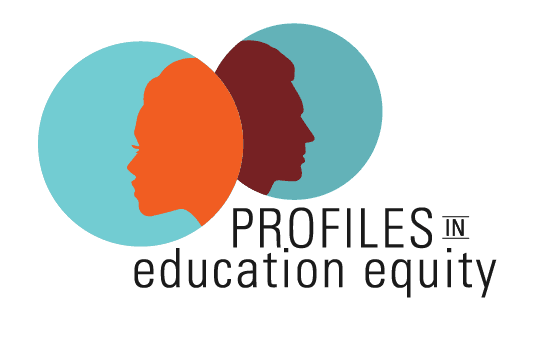Profiles in Education Equity: Cynthia Osborne, Child and Family Research Partnership
 Cynthia Osborne, Ph.D., is the associate dean of the LBJ School of Public Affairs at The University of Texas at Austin. She is founder and director of the Child and Family Research Partnership, home of the Prenatal-to-3 Policy Impact Center and the new 50-state Prenatal-to-3 State Policy Roadmap. She is also an appointed member of the National Academies of Sciences, Engineering, and Mathematics (NASEM) Committee to Reduce Child Poverty by Half in 10 Years.
Cynthia Osborne, Ph.D., is the associate dean of the LBJ School of Public Affairs at The University of Texas at Austin. She is founder and director of the Child and Family Research Partnership, home of the Prenatal-to-3 Policy Impact Center and the new 50-state Prenatal-to-3 State Policy Roadmap. She is also an appointed member of the National Academies of Sciences, Engineering, and Mathematics (NASEM) Committee to Reduce Child Poverty by Half in 10 Years.
What does education equity mean to you?
To me, education equity means the elimination of disadvantages and disparities that continue to exclude people of specific racial and ethnic groups (i.e., Black, Latino, Indigenous people, and other people of color) from accessing opportunities to meet their full potential. An equitable system of care for children and parents is one that integrates and ensures fair access to resources within our education, healthcare, childcare, social services, and employment institutions to allow children of all races and ethnicities to participate and thrive. Equitable access to effective early childhood programs is especially important because of their long-lasting positive effects on the social, emotional, and cognitive development of young children.
Share one big success from your work to date.
At the Prenatal-to-3 Policy Impact Center, we conducted comprehensive and rigorous reviews of the evidence and identified the most effective policies and strategies that states can implement to promote healthy environments for children in the earliest years and build strong systems of care. We recently released our findings in the inaugural 2020 Prenatal-to-3 State Policy Roadmap as a policy baseline for states. State leaders have really taken the Roadmap to heart, especially given the unprecedented challenges they’re facing with the COVID-19 pandemic. More work must be done, however, to ensure that the evidence-driven policies and strategies are also equitable for Black and Latino children. We implemented an equity initiative and are collaborating with leading voices in the field to ensure equity is at the core of our work to strengthen all families.
What motivates you to advocate for education equity?
I started my teaching career in a middle school in a low-income neighborhood in California. During this time, I saw the personal challenges my students of color faced and began to take a broader approach to equity. Disparities in children’s outcomes start before they ever get to school, are impacted by a fragmented system of policies and institutions, and have life-long consequences. Children are born with amazing potential, but our policies and systems do not currently support families of color to help their children reach this potential. Racial and ethnic disparities are the result of policy choices and long-standing racism — unequal access to services, treatment of mothers of color while pregnant, concentrations of lower quality childcare centers and schools in lower income neighborhoods, discrimination in employment. This comprehensive equity lens is what continues to ground and guide my work.
What do you think are the most pressing education equity issues right now?
We know that where children begin school is the primary predictor of how well they do over time, and racial and ethnic disparities in access to high-quality education and positive outcomes at kindergarten must be reduced. We also know from the science of the developing child that the prenatal to age 3 developmental period is foundational for all learning, behavior, and health. Investing in the earliest years, before kids ever step into a classroom, has positive impacts throughout the life course. Through policy, we can help to support children’s health prenatally and from birth, intervene quickly if developmental delays or other needs are identified. Strengthening families and communities to better serve the needs of children in the earliest years will help close racial and ethnic gaps in access and outcomes over the long term.
What’s next in regards to your work?
For our work at the Policy Impact Center, we are defining criteria that will assess whether each prenatal-to-3 policy and strategy that the evidence shows to be effective is also equitable for Black and Latino children. The equity criteria will include measures for determining whether there is evidence that a policy closes existing racial and ethnic gaps in access and outcomes, as well as analysis of the impact of unintended or intended negative consequences of a policy on specific racial and ethnic groups. These equity assessments will be shared with states to help guide them toward building a more equitable system of care for families and children, regardless of their racial or ethnic identities.
